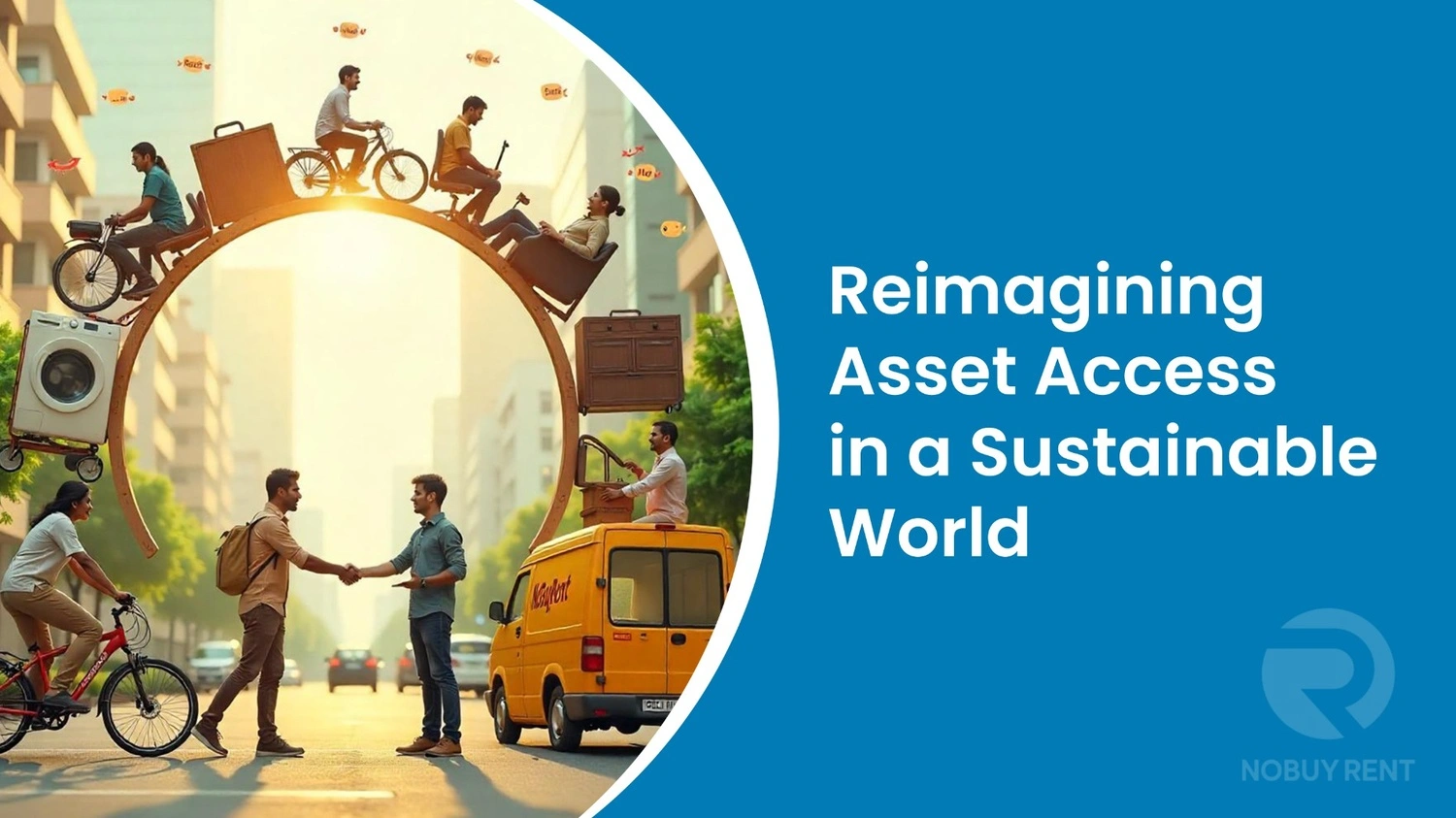
The Rise of the Rental Economy in India
In an increasingly moving world by sustainability and intelligent consumption, the age-old definition of ownership is being questioned India, with its fast-changing consumer habit and increasing environmental consciousness, is welcoming this change through the thriving rental economy. Whether renting cars, household appliances, apparel, tools, or technology devices, access to assets rather than ownership of them is now a thoughtful decision, not a sacrifice.
Platforms such as NobuyRent are leading this revolution by designing frictionless digital marketplaces where users can list and share a vast array of products and services, and make asset sharing accessible, efficient, and sustainable.
India’s rental market is no longer limited to cars and apartments. It has diversified to include:
- Electronics like laptops and cameras
- Home appliances
- Vehicles like cars, bikes, tempo traveler
- Construction equipment and tools
- Fashion wear, furniture, and even services like Acting drivers, electricians, plumbers and photographers
According to a 2024 report by ResearchAndMarkets, India’s rental industry is projected to grow at a CAGR of 11.2% through 2030, driven by affordability, sustainability, and the convenience of online platforms.
Why Renting is Gaining Ground in India

1. Cost-Effective Living
City consumers, particularly millennials and Gen Z, prefer to rent to escape the burden of large initial expenses. With short-term commitments and little maintenance, renting is an affordable means of obtaining high-value assets.
2. Flexibility and Convenience
Whether you're moving, entertaining briefly, or living a higher lifestyle, renting provides an only amount of flexibility. using the best available equipment or services only when needed, not burdened by long-term ownership responsibilities.
3. Environmental Sustainability
Every rented item reduces the need for new production. In a country where over 62 million tonnes of waste is generated annually (CPCB, 2022), the reuse and circulation of goods through renting can significantly lower carbon emissions and landfill pressure.
4. Empowering Micro-Entrepreneurs
The rental economy is unlocking earning opportunities for everyday individuals. Idle assets like an extra AC, old DSLR camera, or exercise cycle can now generate passive income via platforms like NobuyRent.
How NobuyRent is Reimagining Asset Access

NobuyRent is a free-to-use rental platform that connects product owners and renters across India. Here’s how it's transforming the space:
- All type of Listings: From vehicles and electronics to services and party supplies
- No Inventory Holding: C2C model ensures faster and localized access
- User-Friendly Platform: Easy listing, browsing, and contacting directly
- Zero Middlemen Charges: Renters and owners deal transparently
This model promotes a circular economy, where reuse is not just encouraged but celebrated.
Case in Point: From Waste to Wealth
A 2023 internal survey by NobuyRent revealed that users who listed idle items like microwaves, treadmills, or generators earned ₹5,000 to ₹15,000 monthly by simply renting them out locally.
This not only boosts personal income but reduces the environmental toll of mass production. It’s a win-win for people and the planet.
Challenges in the Rental Space—and the Way Forward
Although the concept of access over ownership is picking up pace, issues such as trust, product quality, and awareness still overcome. Platforms must focus on:
- Verified Listings with indian numbers
- Educating users about the value of reuse
As consumer education increases and digital access scalable, the rental economy in India is secure for exponential growth.
A Smarter, Greener Way to Live
Reimagining asset access is not a trend—it’s an original shift.. With financial pressures rising and environmental concerns becoming urgent, Indians are waking up to the idea that you don’t need to own everything to enjoy everything.
The rental business, powered by digital platforms like NobuyRent, is enabling this transition by offering sustainable, flexible, and economically sound alternatives to ownership.


